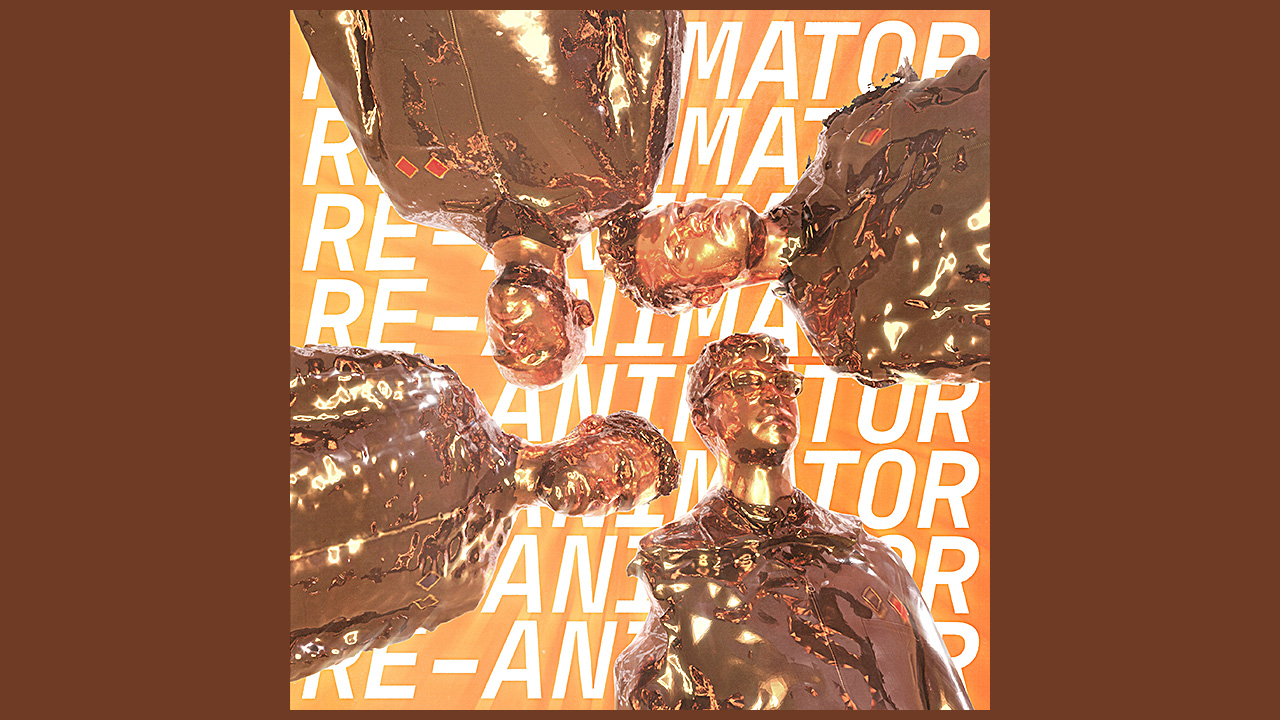Although housed within the indie rock community, it always felt like Manchester four-piece Everything Everything lived on the weirdest outskirts of the genre. With their fifth album, Re-Animator, the band’s desire for a “less thinking, more action” approach resulted in something even further from the centre of town.
If this is an unfiltered Everything Everything, it suggests that the band’s subconscious is more progressive than pop and hints towards something more abstract. They seem less concerned than ever about appealing to a wide audience – although plenty of big hooks certainly do no harm. Instead, they let the songs dictate their own fates, leaving no room for overthinking as they intrinsically veer left-field, a copy of Kid A gripped tightly in hand.
Their previously frantic vocalist Jonathan Higgs uses his quick wit in more reserved ways, giving the record a strong spirit of Radiohead. On It Was A Monstering, he goes full Thom Yorke. His drawn-out, exacerbated melodies skim his band’s art-rock canvas, which perennially deviates from the typical pop structure path listeners had been led to believe the group were on.
Lost Powers’ hook of ‘Come on, you only lost your mind’ floats on an uneasy breeze, while its instrumentation never quite nestles in place as fuzz-dripped riffs are trippily misaligned from wavering keys. Moonlight’s skittish backbeats, sour guitar progressions and warped vocals continue in a similar vein.
In many ways, it’s a transitional album. Across its 11 tracks, an explorative maturity replaces youthful gung-ho, resulting in a less energetic but more introspective record. Although its change of character initially confused fragments of their fanbase, it has aged like a fine wine. Lord Of The Trapdoor’s playful polyrhythmic guitars ping-pong between speakers as Higgs flits seamlessly between rapping and elongated hooks. Its irregularities coat the song in a bizarre paranoia, the gritted riff midway through sounding like Black Holes And Revelations–era Muse remixed by Dillinger Escape Plan.
Lyrically, Higgs found himself captivated by Julian Jaynes’ theory of bicameral mentality. This explores the idea that our ancestors didn’t consider emotions and desires as stemming from their own minds, but from the hand of the gods. Higgs’ protagonists hear multiple voices and are unsure which to listen to, mirroring the band’s balancing act of experimentalism with commercial appeal. Turns like ‘Caught in the twist of delight/ Between this world and the light’ on the haunted dysmorphia of Black Hyena capture that indecision. His signature absurdities – which reference everything from local criminal Purple Aki to sentient grease – neglect all pop sensibilities entirely.
What makes Re-Animator so unique is its reluctance to be anything in particular. It’s too weird to be explicitly pop, yet its surrealism is grounded in a desire to be memorable and, in that intervening void, it spectacularly lays its hat.

